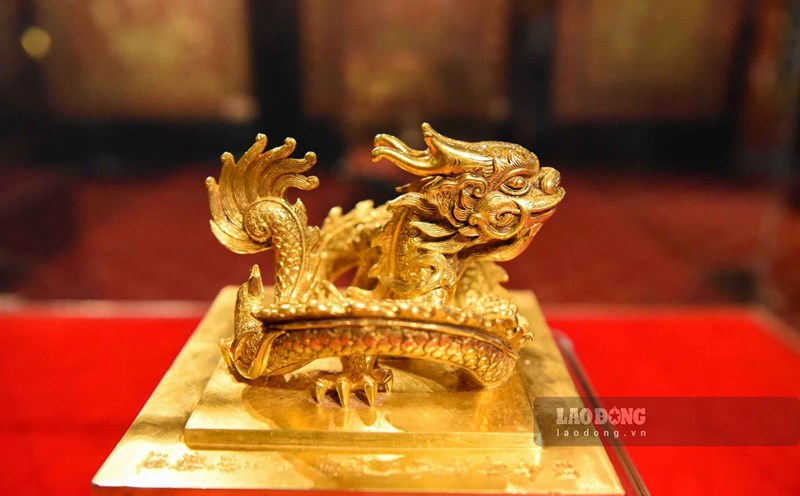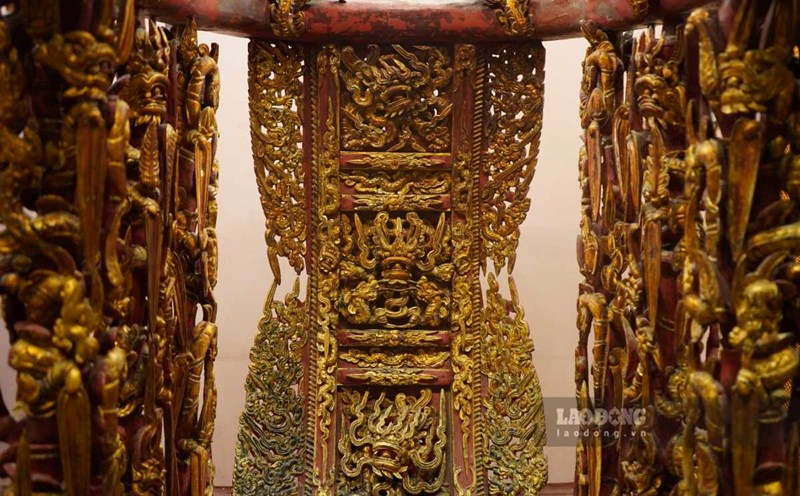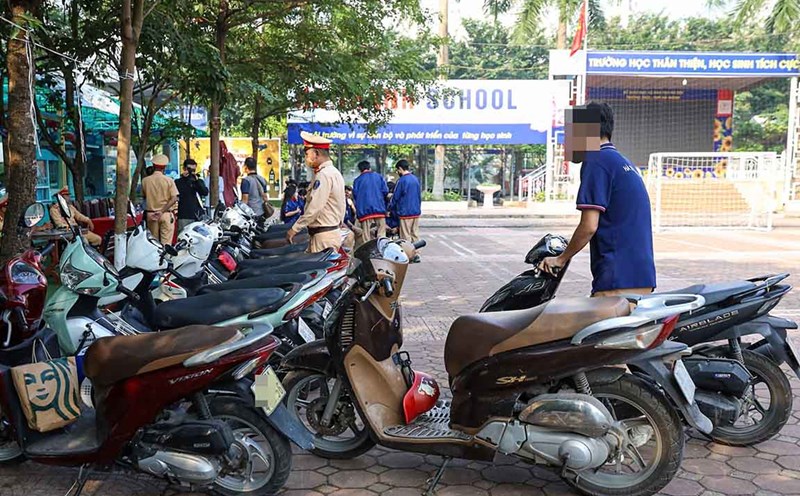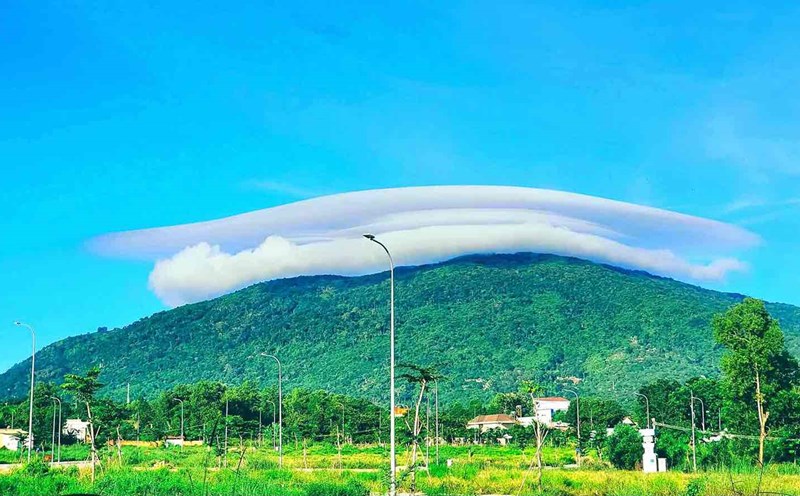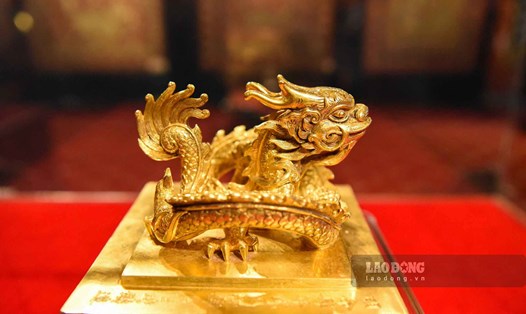The People's Committee of Bac Ninh province requested the Ministry of Culture, Sports and Tourism to review and report to the Council for appraisal of artifacts and artifact dossiers, and submit to the Prime Minister for recognition of national treasures in the 13th period, 2024 for the Emperor's golden seal (treasure of the Emperor).
This golden seal was purchased by businessman Nguyen The Hong, owner of the Nam Hong Royal Museum in Tu Son, Bac Ninh, with the sponsorship of the Vietnamese Government and ministries and branches.
The purchase price was 6.1 million Euros (more than 153 billion VND) from an auction by MILLON (France) in late 2022. The seal was then "repatriated" in November 2023 and is currently on display at the Nam Hong Royal Museum.
According to the provisions of Article 4 of the Law on Cultural Heritage (amended and supplemented in 2009), the Emperor's Golden Seal is fully qualified and worthy of being recognized as a National Treasure in this period.
If recognized, the Emperor's Imperial Seal is not a privately owned antique and is also the first Nguyen Dynasty seal to be listed as a National Treasure.
However, the fact that the Emperor's golden seal has become a National Treasure has a very special meaning because this golden seal is associated with many important historical milestones of the nation.
First of all, during the Nguyen Dynasty, the Emperor's golden seal was used for public and political activities such as celebrations, granting grace, pardoning criminals, inspecting localities, issuing royal decrees to foreign countries, etc.
And this is the antique that former Emperor Bao Dai chose from more than 200 seals of various types kept at Can Chanh Palace and the Royal Palace, along with the sword that King Khai Dinh (reigned from 1916 to 1925) gave to the revolutionary government at Ngo Mon in 1945 after announcing his abdication.
Historian Tran Huy Lieu represented the revolutionary government in receiving this set of seals and swords, then transferred them to Hanoi right before President Ho Chi Minh read the Declaration of Independence, giving birth to the Democratic Republic of Vietnam on September 2, 1945.
However, after the French recaptured Hanoi in late 1946, the golden seal was lost. It was discovered by the French and returned to former Emperor Bao Dai in 1952.
Then came a journey of wandering abroad that lasted for more than 70 years, before being “discovered” at an auction in France. Next was a very arduous journey with more than a year of negotiation, discussion and implementation of related legal procedures between Vietnamese and French partners to “repatriate” this seal.
If the proposal is approved, Vietnam's list of National Treasures will welcome for the first time a "lost child" with a very special status returning from abroad.
This is not only the recognition of a valuable historical and cultural treasure but also a symbol of determination, perseverance in protecting and preserving national heritage and the spirit of solidarity and international cooperation in preserving cultural heritage!


